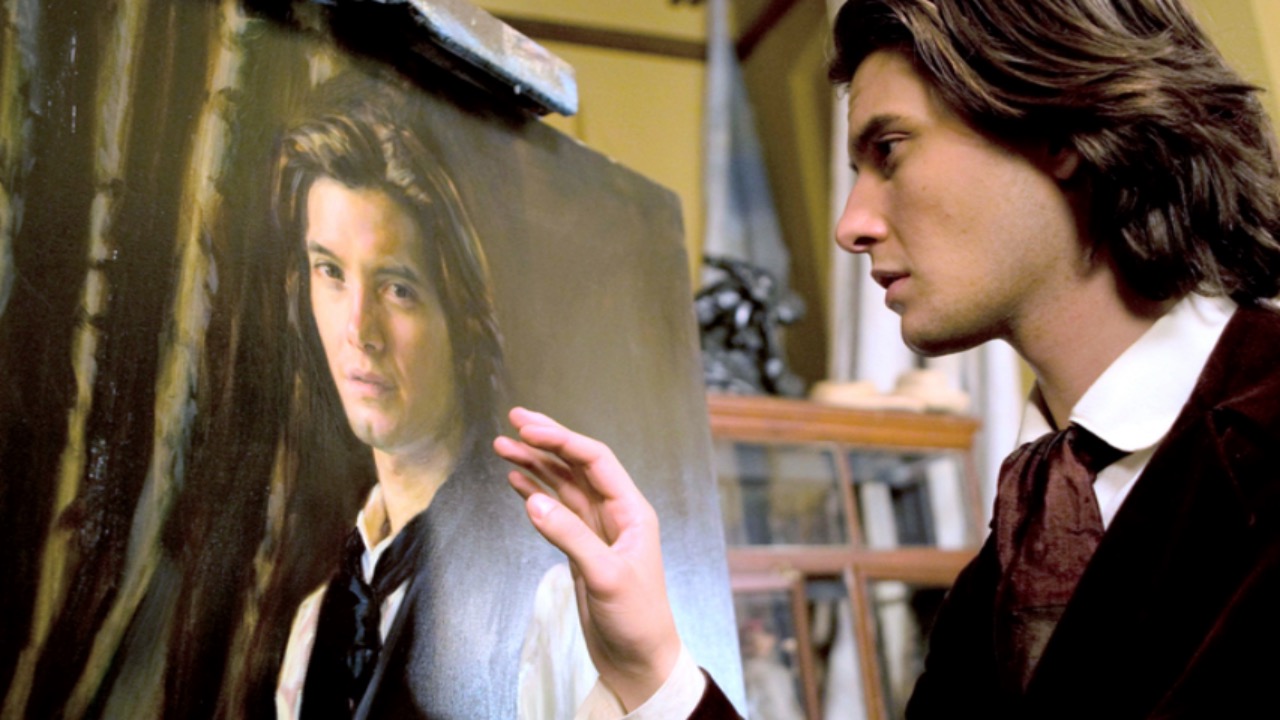By Efstathia Valavani,
In 1890, when Oscar Wilde first published his impactful novel, he was attacking the hypocrisy that plagued Victorian society. In 2024, after The Picture of Dorian Gray has been re-read and re-adapted countless times, we still live in a world drowning in the filthy swamp of deceit, where people let their souls be destroyed, trying to be appealing and more favoured than others. Influencers are public figures that are blindly admired and followed by a great share of the public, despite being strangers for most people. We can never know the true identity, intentions and opinions of an individual we have only seen on our screen. Most of these people present to the world a “filtered” version of themselves. They try to charm the masses by convincing them that they are beautiful, interesting, and funny. Just like Wilde’s character, they keep the essence of their Self hidden in the darkness of their soul’s most remote spot.
Wilde’s novel tells the story of Dorian and the perfect portrait Basil painted of him. Like another Narcissus, Dorian Gray seems to be falling in love with the reflection of himself through the painter’s art. In a state of trance, he sells his soul and wishes his appearance would stay forever the same, as the portrait ages through the years. Indeed, Dorian manages to remain handsome, youthful and pure-looking, despite the sinister life he has been leading through the years. Bewitched by Lord Henry’s constant spouting, Gray becomes an experiment of his cynical philosophy and outlook on life. Like many other people, both in Wilde’s era and in our own, Dorian hides his real face behind a bombastic persona that is too blinding to let anyone see the background of his hedonistic life. His spirit is rotting separately from his mortal flesh, infected by the ever-growing wickedness that guides him. At the end of the novel, the other characters encounter his real soul as the protagonist lies dead, and they do not seem to be able to recognize who he is.

Throughout the novel, Oscar Wilde’s main character hides the dark reality of his soul and presents himself as a benign figure to a shallow world that only cares about appearances. His excessive beauty, for the people of that era, proves the excellence of his character. The characters of the novel celebrate him, assuming he is an innocent young man, and never question his integrity. When somebody tries to speak against this important individual in the novel, they have little to no power against his great influence. Everyone becomes obsessed with him and seeks the company of the corrupt man who happens to be endowed with the gift of timeless beauty. A mere man is so pleasing to the eyes of the public that he could make everyone believe his greatest lies, by obscuring his appalling actions. Basil, the person who had such a clear vision of his friend’s purity, is simultaneously the source of his vanity. As soon as Dorian saw that he could be perceived in the way the painter understood him, his innocence began to vanish.
The Picture of Dorian Gray depicts a diseased society that has only further decayed in the 21st century. In the modern Western world, we tend to cling to appearances and first impressions instead of diving into one’s true personality. Nowadays, people create their persona through social media or participate in a reality show in order to become celebrities, without being characterized by any particular talent that could justify their popularity. The public is currently led by vainglorious characters with no education, no ethics and no hope for the future, while the individuals that truly deserve to be celebrated are reduced and overshadowed. Those with corrupt personalities and questionable morals dazzle the youth with their hypocrisy, while being dreadful role models for them.

Influencers are prevalent in many aspects of society through the Internet, and while some of them have the potential to contribute to societal development, the majority of these individuals exhibit unoriginal and uninteresting content, covered with the cloak of “coolness” and noteworthiness. Ironically, when the facade of one of these dominant figures falls, we are taken aback as details of their hideous personal lives are revealed. We are somehow startled by the fact that the reality of the complete stranger we appreciate could be so different from the image they curate for us.
Oscar Wilde’s novel remains as relevant as ever in our times, and it will remain so for as long as people will be hiding the true parts of themselves in order to obscure their inner ugliness. If we do not deal with our constant state of decay in more humane ways for ourselves and others, a dead society is what we will eventually become. We are terrified of the ever-growing Artificial Intelligence and its potential of replacing humans, but we do not seem to worry about human beings turning into soulless machines, with no feelings or morals, and living in a world where nothing is real and trustworthy.
Reference
- Oscar Wilde. The Picture of Dorian Gray. Wordsworth Classics.Ware. 1992.




